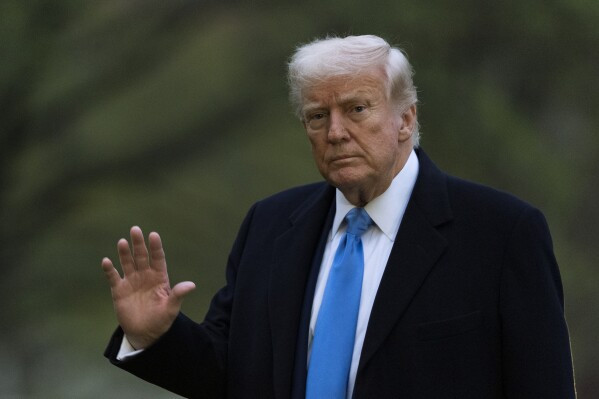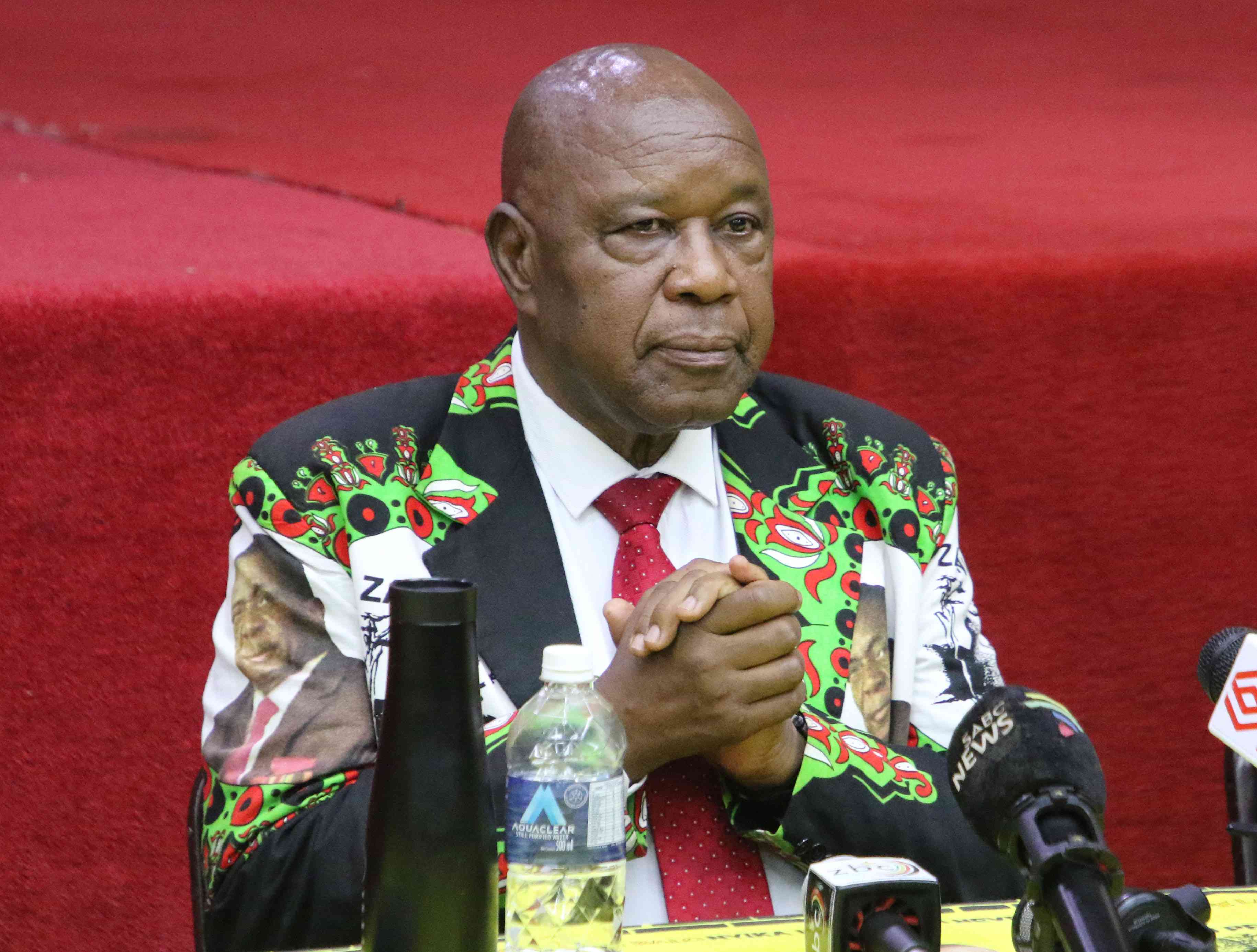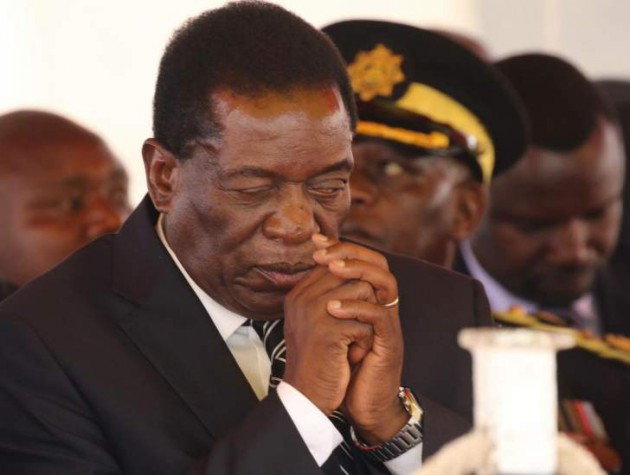
The wholesale imposition of tariffs by the Donald Trump administration in the United States of America has drawn widespread criticism and consternation among countries of the world.
Zimbabwe is among the countries that are targeted with an 18% tariff rate.
Other African countries like South Africa, Lesotho, Libya, Nigeria and others are facing different rates, whose calculation and basis has been described at best as confusing, and at worst inimical and downright evil - like imposing a 50% tariff on the little southern African country of Lesotho, which exports textiles and diamonds, and had relied on favourable trade terms under Agoa. (Similar misgivings have been made with respect to countries like Cambodia and Vietnam, who face similar rates.)
The blanket nature of Trump’s “reciprocal tariffs”, targeting big and small economies, America's friends and foes alike has led to largely disjointed and uncoordinated responses by various countries.
Admittedly, one could argue that this is a situation that Trump actually wanted. In essence, according to various experts and analysts, the maverick president of the world's biggest economy and most powerful country is a transactional leader and the tariffs were his way of bringing countries to a negotiated settlement in favour of America through a chaotic tariffs regime that threatens to bring down the global economic order.
US treasury secretary Scott Bessent said in an X post on Monday that the White House was prepared to hold “meaningful negotiations” in the coming weeks with some of the more than 50 countries that have responded “positively” to Trump’s “reciprocal tariffs”.
Already, various countries and economic blocs have made representations on how to respond to Trump tariffs.
Not least, Zimbabwe at the weekend announced that it would suspend tariffs on American goods which ostensibly attracted the US "reciprocal" measures.
- Letter from America: Is former president Donald Trump a hero or villain?
- Chidzivo, Tarakinyu clinch Kabag honours
- CCC urged to push for dialogue over reforms
- A peep into Matenganyika’s artistic closets
Keep Reading
But, how far can this go and what should countries do to respond to the situation effectively?
And how should the world effectively respond in ways that safeguard global trade.
In as far as it is true that there is a method to Trump's madness, it is equally true that the world needs to have a method to cure the madness.
Why the Trump tariffs are madness, and wrong
Several objections have been made to the situation, which, if left unchecked, will bring down the global economic order or economic globalization while also precipitate a global recession, as predicted by many experts.
The unilateral Trump tariffs are said to have “seriously violated “the legitimate rights and interests of various countries, seriously breached the rules of the World Trade Organisation (WTO), severely damaged the rules-based multilateral trading system, and significantly disrupted the stability of the global economic order and market principles.
Trump tariffs disregard the balanced results of interests reached in multilateral trade negotiations and turn a blind eye to the fact that the United States has long reaped substantial benefits from international trade.
China, the world's second largest economy, has so far made the most comprehensive response to Trump tariffs [and also retaliated with its own tariffs matching the US' measures], outlining why the Trump tariffs are wrong and untenable.
According to a position paper issued by the Chinese government last Saturday, using tariffs as a weapon to exert maximum pressure and seek self-interests is a typical act of unilateralism, protectionism, and economic bullying.
According to China, under the guise of pursuing so-called "reciprocity" and "fairness," the United States engages in zero-sum games.
In essence, the US is pursuing "America First" and "American Exceptionalism."
It aims to subvert the existing international economic and trade order through tariff measures, place American interests above the common interests of the international community, and sacrifice the legitimate rights and interests of countries around the world to serve its hegemonic interests.
China states that this was bound to be widely opposed by the international community.
For its own part, as the world's second-largest economy and the second-largest consumer market for goods, regardless of how the international situation may change, China stated that it would" only open its door wider to the outside world".
"We will continue to promote high-level opening-up, steadily expand institutional opening-up in terms of rules, regulations, management, standards, etc., implement high-level trade and investment liberalization and facilitation policies, create a world-class business environment that is market-oriented, law-based, and internationalized, share development opportunities with the world, and achieve mutual benefit and win-win results," China said.
China argued that economic globalisation was an inevitable path for the development of human society.
It further stated that development is the universal right of all countries in the world, not the privilege of a few and that international affairs should be discussed and decided by all countries together, and the future and destiny of the world should be in the hands of all countries.
"There are no winners in trade wars or tariff wars, and protectionism leads nowhere," China stressed, calling on all countries to uphold the principles of extensive consultation, joint contribution, and shared benefits, adhere to true multilateralism, jointly oppose all forms of unilateralism and protectionism, safeguard the international system with the United Nations at its core, and maintain the multilateral trading system with the WTO at its core.
Last Sunday, China’s Vice Minister of Commerce encouraged US companies to pursue fact-based dialogue and take practical steps to help safeguard the stability of global supply chains.
Other countries, particularly major European economies, have complained bitterly about the Trump tariffs, but mostly from the perspective of aggrieved partners and former allies, without offering a clear and inclusive solution that safeguards global trade, including protecting rights of all nations big or small.
European Commission President Ursula von der Leyen said the EU is willing to negotiate with the US on tariffs but she also said the bloc would prepare to retaliate.
According to Reuters, the European Commission proposed on Monday counter-tariffs of 25% on a range of US goods, including diamonds, eggs, dental floss, sausages, poultry, almonds and soybeans.
Trump’s “reciprocal tariffs” have sent shock waves through global financial markets, upsetting nations around the globe and fuelling recession fears.
More than US10 trillion has been wiped off major markets, as concerns about the economic damage unleashed by Trump tariffs spiral.
Japan’s Nikkei 225 closed 7.83% lower on Monday. Hong Kong’s Hang Seng Index plunged 13.22%. The Nasdaq slumped 5.8% on Friday to end the week by losing over 10%.
Dow Jones and S&P 500 both reported their largest weekly loses since March 2020.
About 69% of the CEOs surveyed by CNBS said they expect a recession on the heels of Trump’s sweeping, market-rupturing tariffs announced last week, and over half of them said they anticipate that the downturn will come this year.
Coordination key to respond to Trump tariffs
Zimbabwe's response to the Trump tariffs, while commended in some quarters as an act of "economic diplomacy" has faced criticism from others particularly in the sense that it appears isolated, strategic and parochial.
Zimbabwe may have "jumped the gun" by announcing in isolation its response outside of regional and continental frameworks, which could provide better leverage politically, diplomatically and indeed economically.
It is perhaps of interest to Zimbabweans that Vietnam has offered zero tariffs to the US but White House trade advisor Peter Navarro has said this offer is “not enough”, describing it as a “small first start.”
One school of thought is that Zimbabwe, as chairperson of the SADC regional bloc, could have led a coordinated regional response to the tariff imbloglio, as Zimbabwe's cause could be argued within regional dynamics where countries such as South Africa (31%), Lesotho (50%), Botswana (38%) Malawi (18%), Namibia (21%), Zambia (17%), etc; face particularly steep levies.
A regional approach could give Zimbabwe a more resonant voice; and this could be cascaded up to continental level, with the African Union of necessity coming up with a continental position. Perhaps, this could be an opportunity to renegotiate AGOA or find its successor framework.
Why has this not taken place? Why are countries not seeing wisdom in collectivising their respective grievances, and also put together solutions for the situation?
It can be surmised that Africa may as well join other global blocs, including the European Union, Asia and South America to put a united front against the USA's unfair and untenable moves.
This lacuna could be exploited by Trump to the disadvantage of all countries in their disunity.
This is probably why there is need for a strong leadership to rally the world against the US.
China's insistence on the desirability of "economic globalization in a more open, inclusive, beneficial, and balanced direction" should lead to a rethink of how countries respond to Trump tariffs.
In a sense, this is the beginning of more chaos in the global order.
The solution lies in countries putting common interests first and finding sustainable solutions that benefit all countries big and small in the long term.
Unity and coordination will be paramount.









